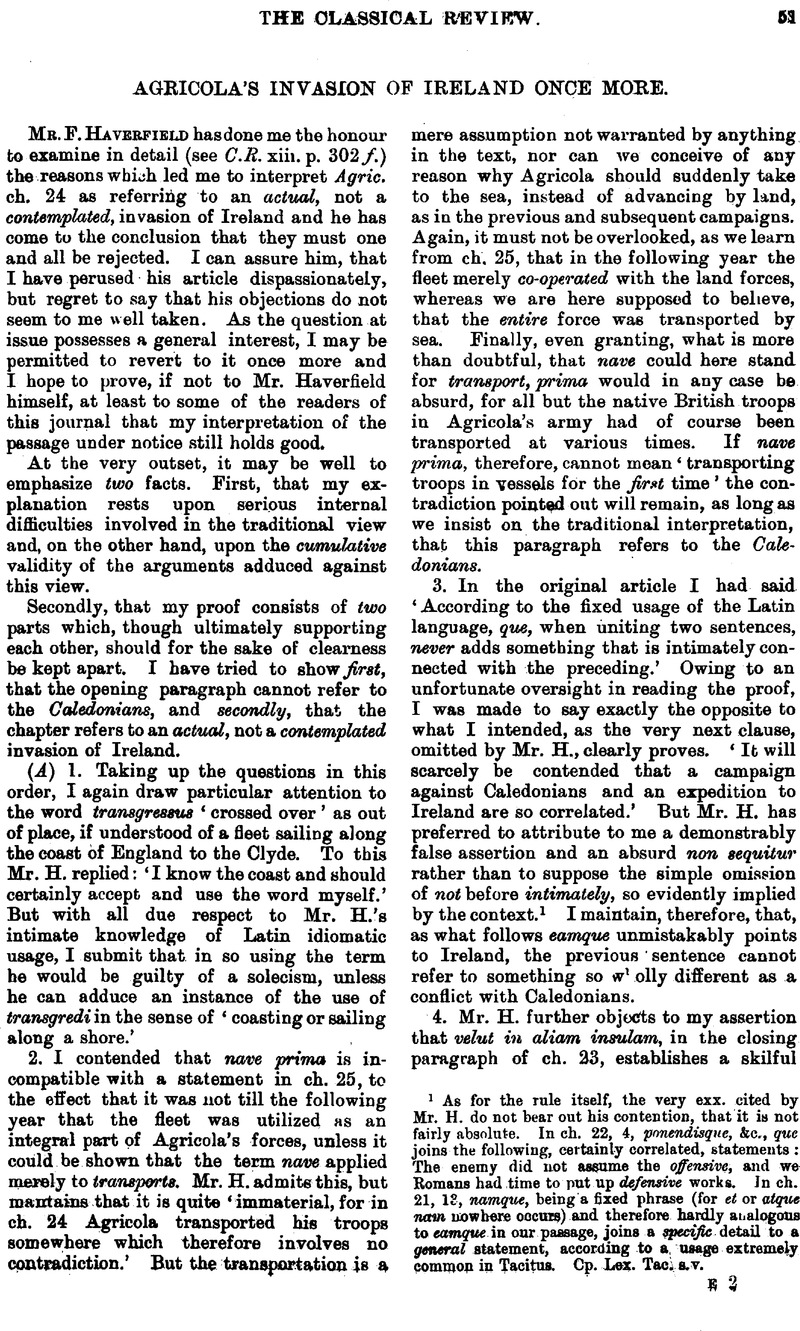No CrossRef data available.
Article contents
Agricola's Invasion of Ireland once More
Published online by Cambridge University Press: 27 October 2009
Abstract

- Type
- Original Contributions and Comptes Rendus
- Information
- Copyright
- Copyright © The Classical Association 1900
References
page 51 note 1 As for the rule itself, the very exx. cited by Mr. H. do not bear out his contention, that it is not fairly absolute. In ch. 22, 4, ponendisque, &c, que joins the following, certainly correlated, statements : The enemy did not assume the offensive, and we Romans had time to put up defensive works. In ch. 21, 18, namque, being a fixed phrase (for et or atque nam. nowhere oocurs) and therefore hardly analogous to eamque in our passage, joins a specific detail to general statement, according to a usage extremely common in Tacitus. Cp. Lex. Tac. s.v.
page 52 note 1 For an equally subtle transition, also hitherto unnoticed, cp. ch. 33, extr. in ipso terrarum ac naturae fine cecidisse and ch. 34 init. si novae gentes et ignota acies, with my note ad loc.
page 52 note 2 It has been suggested that we may take the clause in question in a general sense, of an offensive strategic movement, there being thus no motive for any formido at all. But if fear is ex hypothesi excluded, I do not understand why Tacitus felc called upon to suggest this very thing as a possible contingency by gratuitously adding magis quam ob formidinem. Every reader would know that with offensive tactics, fear was naturally quite out of the question.




